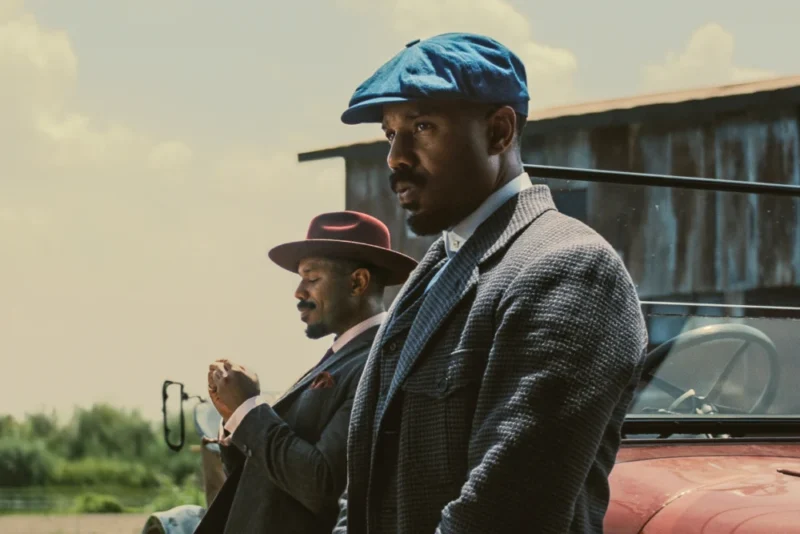Why ‘Sinners,’ a Jim Crow-era vampire film, is a personal endeavor for director Ryan Coogler
Share
Explore Our Galleries
Breaking News!
Today's news and culture by Black and other reporters in the Black and mainstream media.
Ways to Support ABHM?
By Ronda Racha Penrice and Ariana Brockington, NBC

A vampire film set in 1930s Mississippi may seem out of left field for director Ryan Coogler. But its personal ties to the story and explorations of race and belonging are consistent with his four other feature films, “Fruitvale Station,” “Creed,” and the record-breaking “Black Panther” and its sequel “Black Panther: Wakanda Forever.”
“Sinners,” Coogler told NBC News, is a tribute to his Uncle James, who “was the oldest male member of my family from Mississippi.” “He meant a lot to me,” Coogler continued. “He passed away right after I was in post-production on ‘Creed’ and all he would do is play blues records.”
Coogler’s longtime friend and collaborator Michael B. Jordan plays twins Smoke and Stack, who leave the Mississippi Delta to fight in World War I and later settled in Chicago, where they are rumored to work with the infamous Al Capone. The brothers return to Mississippi with wads of cash to open a juke joint featuring their cousin Sammie (an acting debut for singer Miles Caton), who plays the “devil’s music” on his guitar while ignoring the warnings of his preacher father.
As the twins prepare for opening night, they add to the mix blues musician Slim (Delroy Lindo), as well as their love interests Annie, a root woman played by “Lovecraft Country” star Wunmi Mosaku, and Hailee Steinfeld’s Mary, who is perceived to be a white, among others.
In adherence to the strict racial divide of the time, white vampires, however, were not on the guest list.
Read more about the film.
Learn about the realities of Jim Crow.









Comments Are Welcome
Note: We moderate submissions in order to create a space for meaningful dialogue, a space where museum visitors – adults and youth –– can exchange informed, thoughtful, and relevant comments that add value to our exhibits.
Racial slurs, personal attacks, obscenity, profanity, and SHOUTING do not meet the above standard. Such comments are posted in the exhibit Hateful Speech. Commercial promotions, impersonations, and incoherent comments likewise fail to meet our goals, so will not be posted. Submissions longer than 120 words will be shortened.
See our full Comments Policy here.